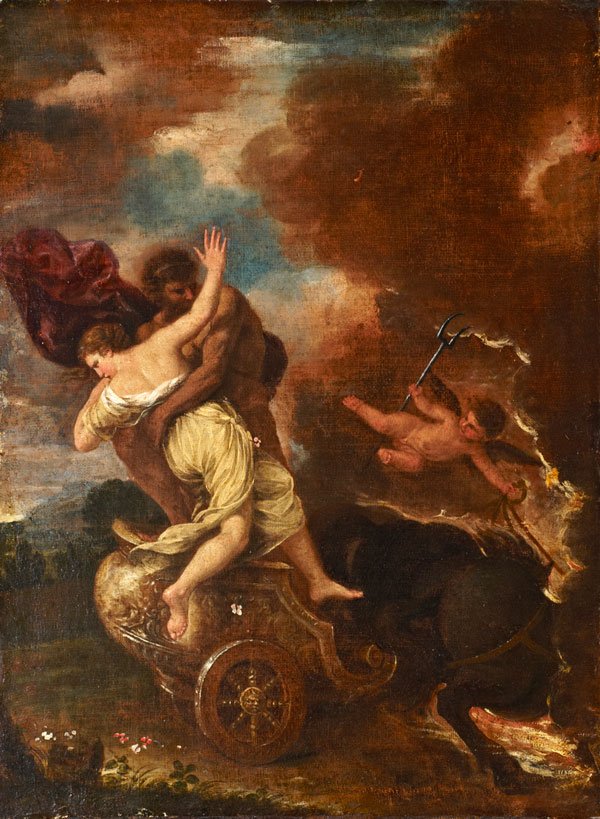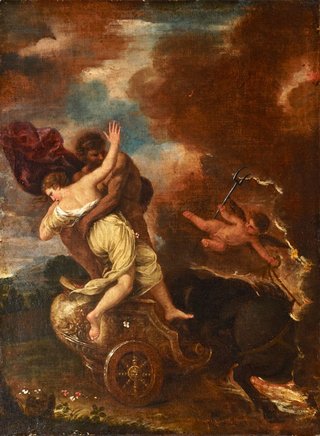

Pluto and Proserpine by Circle of Pietro Francesco Mola
Date: Late 17th Century
-
Acquisition
Bourgeois Bequest, 1811
-
Accession number
DPG075
-
Artist
Circle of Pietro Francesco Mola
-
Date
Late 17th Century
-
Dimensions
65.4 x 48.9 cm
-
Materials
Oil on canvas
A whirlwind of action takes centre stage. The sudden change from serenity to chaos is echoed by the billowing storm clouds which rapidly encroach on the remaining patch of blue sky. Caught in a vortex of movement, Pluto, god of the underworld, has caught Proserpine, the goddess of spring, in his arms. Her pale flesh and robe contrast with the deeper tones of her assailant’s body. Proserpine’s hand is raised in alarm and her feet flail in the air as she is whisked away. The flowers that she had been gathering peacefully only moments before, tumble from her skirts onto the ground below. A winged putto wielding a sharp, pronged staff creates a break in the tumultuous clouds, guiding the horse-drawn chariot to the underworld below. The horses’ rears are still visible as they cross this fiery threshold.
Myths and legends, such as that of Proserpine and Pluto, were popular themes for Baroque artists, known for their grand works filled with dramatic flair and impressive compositions. Metamorphoses, a poem by the Roman poet Ovid (43 BCE-17 CE) which retold ancient legends, was a respected resource from which artists could draw on narrative and emotive subjects. This artist, working in the orbit of the Italian painter Pietro Francisco Mola (1612-66), has chosen Ovid’s account of the pivotal moment when Pluto spies Proserpine and abducts her. Ovid describes how the flowers fall when the shoulder of Proserpine’s dress is torn and she calls for her mother as the chariot speeds away.

Want to use or download this artwork?
For personal use - Download artwork
For commercial use - Purchase a licence & download on Bridgeman images